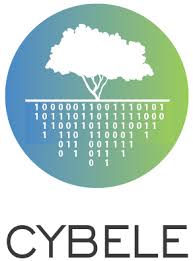 The BDVA organized workshop on HPC, Big Data, IoT and AI future industry-driven collaborative strategic topics took place virtually on May 5th, 2020, aiming to analyse in depth the challenges, limitations and longer term perspectives of the Large Scale Pilot actions, that are currently being developed in the context of the ICT-11-2018-2019 calls to demonstrate the potential of these technologies in the implementation of industrial pilot test-beds, as well as other existing relevant ongoing projects and activities in other programmes. These pilots ad test-beds deal with data coming from different industrial and business domains, such as manufacturing, health and healthcare, agri-food, finance, and other business or public sector domains. Although the particular sectors covered by the pilots provide a diversity of challenges, there are many common difficulties that have to be overcome. The aim of the workshop is to outline future research and innovation needs in terms of convergence and alignment of the basic technologies and their utilization in industry and specially SMEs.
The BDVA organized workshop on HPC, Big Data, IoT and AI future industry-driven collaborative strategic topics took place virtually on May 5th, 2020, aiming to analyse in depth the challenges, limitations and longer term perspectives of the Large Scale Pilot actions, that are currently being developed in the context of the ICT-11-2018-2019 calls to demonstrate the potential of these technologies in the implementation of industrial pilot test-beds, as well as other existing relevant ongoing projects and activities in other programmes. These pilots ad test-beds deal with data coming from different industrial and business domains, such as manufacturing, health and healthcare, agri-food, finance, and other business or public sector domains. Although the particular sectors covered by the pilots provide a diversity of challenges, there are many common difficulties that have to be overcome. The aim of the workshop is to outline future research and innovation needs in terms of convergence and alignment of the basic technologies and their utilization in industry and specially SMEs.
In this context, UBITECH represented the CYBELE H2020 Innovation Action that aspires at demonstrating how the convergence of HPC, Big Data, Cloud Computing (services) and the IoT can revolutionise farming, reduce scarcity and increase our nation’s food supply in a dramatic fashion, bringing enormous social, economic, and environmental benefits. In particular, CYBELE Project Coordinator Dr. Steven Davy from WIT and CYBELE Technical Coordinator Dr. Sophia Karagiorgou from UBITECH presented the technical challenges, the research activities and the convergence of Big Data, HPC and AI technologies in the CYBELE Testbeds applicable to the Precision Agriculture and the Precision Livestock Farming contexts. Within CYBELE, UBITECH undertakes the technical coordination, leads the realization of large scale HPC-enabled test beds and delivers a distributed big data management architecture and a data management strategy providing 1) integrated, unmediated access to large scale datasets of diverse types from a multitude of distributed data sources, 2) a data and service driven virtual HPC-enabled environment supporting the execution of multi-parametric agri-food related impact model experiments, optimizing the features of processing large scale datasets and 3) a bouquet of domain specific and generic services on top of the virtual research environment facilitating the elicitation of knowledge from big agri-food related data, addressing the issue of increasing responsiveness and empowering automation-assisted decision making, empowering the stakeholders to use resources in a more environmentally responsible manner, improve sourcing decisions, and implement circular-economy solutions in the food chain.
Finally, UBITECH R&D team will drive the implementation of a dedicated Experiment Composition Environment, enabling simulation execution in the Precision Agriculture and Precision Livestock Farming domains, that aims to facilitate the detaching of the design, development and execution of the big data analysis processes, supporting embedded scientific computing and reproducible research. The analysis process will be based on the selection of an analysis template, where each analysis template will represent a specific algorithm with the associated software and execution endpoint, and will provide to the user the flexibility to adjust the relevant configuration parameters, including input parameters for the algorithm, execution parameters, parameters associated with networking and computing resources constraints, as well as output parameters. The Experiment Composition Environment will support the design and implementation of data analysis workflows, consisted of a series of data analysis processes, interconnected among each other in terms of input/output data streams/objects. The analytics workflows designed, will be sent for execution on well-known HPC and Big Data frameworks, which will run on HPC resources abstracted to the user.


